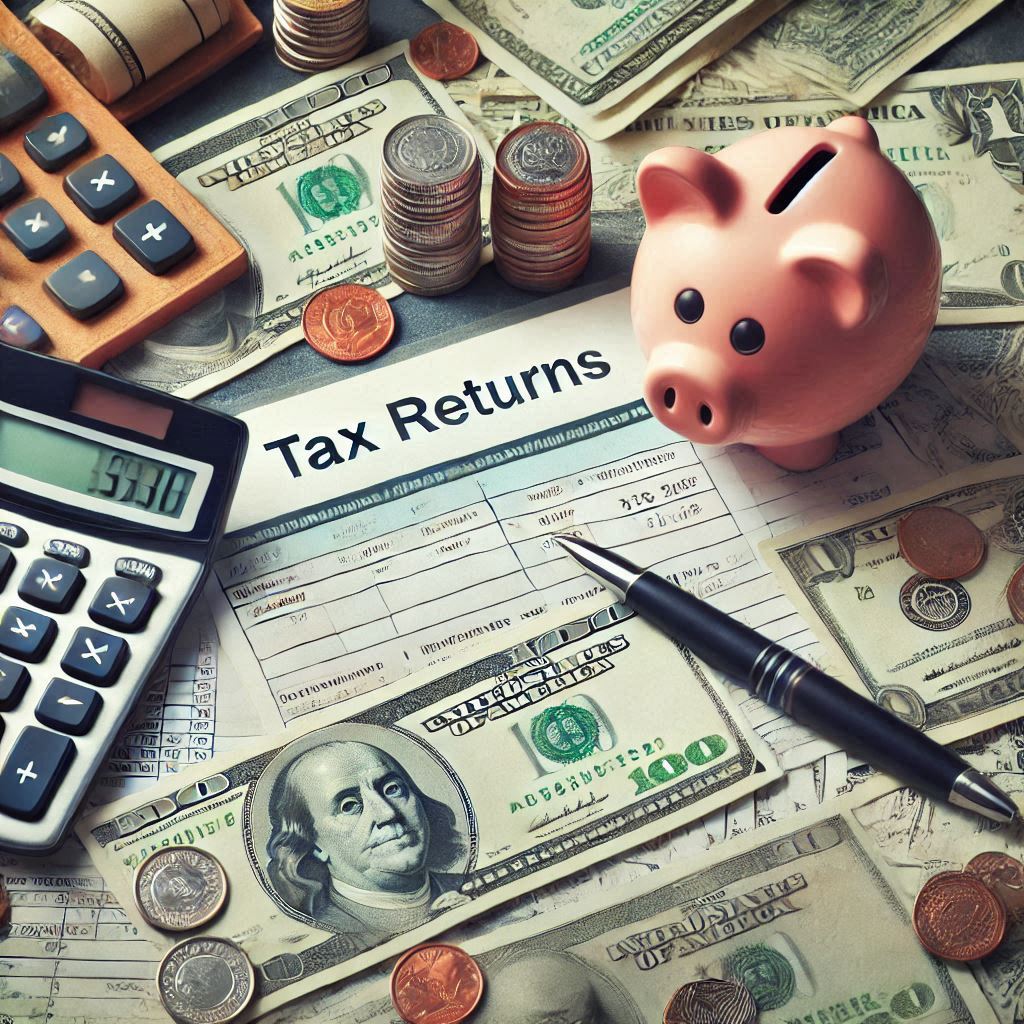Let’s start this article by listing 10 tips for improving your credit score. If you don’t have much time, these tips should give you a high level view to get you started on the journey to secure a high credit rating. For those of you who need a deeper understanding, please read on beyond the 10 tips.
- Check Your Credit Report for Errors
- Pay Your Bills on Time
- Reduce Your Credit Card Balances
- Avoid Closing Unused Credit Cards
- Limit New Credit Applications
- Become an Authorized User
- Dispute Credit Report Errors
- Use a Mix of Credit Types
- Pay Off Debts Strategically
- Utilize Credit Building Tools
These tips provide a comprehensive approach to improving your credit score quickly and effectively. Now let’s dig a little deeper on the above strategies and more.
Understanding Your Credit Score
First things first, let’s break down what a credit score is. Think of it as your financial report card. This number, usually between 300 and 850, shows lenders how responsible you are with borrowed money. The higher your score, the better you look to potential lenders.
Check Your Credit Report
Before you can improve your credit score, you need to know what it is. You can get a free copy of your credit report from each of the three major credit bureaus once a year. Review it carefully for errors. Mistakes like incorrect late payments or accounts that aren’t yours can drag your score down. Keep an eye on your credit score and report regularly. This helps you catch any potential issues early and track your progress.
Pay Your Bills on Time
One of the biggest factors in your credit score is your payment history. Paying all your bills on time is crucial. Set up automatic payments or reminders to make sure you never miss a due date. Consistent, on-time payments can significantly boost your score over time.
Reduce Your Debt to Credit ratio
Your credit utilization ratio is another key factor. This is the amount of credit you’re using compared to your credit limit. Aim to keep this ratio below 30%. If you have high balances on your credit cards, focus on paying them down. You don’t need to zero them out, but the lower your balance, the better.
Don’t Close Unused Credit Cards
It might seem like a good idea to close old or unused credit cards, but it can actually hurt your score. Closing a card reduces your overall available credit, which can increase your credit utilization ratio. Instead, keep the cards open and use them occasionally to keep them active.
Avoid New Credit Applications
Every time you apply for credit, it results in a hard inquiry on your report, which can lower your score slightly. Try to avoid applying for new credit unless it’s absolutely necessary. If you do need new credit, space out your applications over several months.
Become an Authorized User
If a family member or friend has a credit card with a high limit and good payment history, ask if they can add you as an authorized user. This can help improve your score without you having to use the card. Make sure the card issuer reports authorized users to the credit bureaus.
Dispute Credit Report Errors
If you find errors on your credit report, dispute them immediately. Contact the credit bureau that has the error on file, and provide documentation to support your claim. Correcting these errors can give your score a quick boost.
Use a Mix of Credit Types
Lenders like to see that you can handle different types of credit, such as credit cards, car loans, and mortgages. Having a mix of credit types can positively impact your score. Just make sure you can manage all your payments responsibly.
Keep Your Oldest Credit Account Open
The age of your credit accounts matters. The older your accounts, the better your score. Even if you no longer use your first credit card, keeping it open can help improve your credit age and, consequently, your score.
Your credit history length is a significant part of your score. Lenders prefer to see a long history of responsible credit use. This means it’s beneficial to keep old accounts open, even if you don’t use them frequently. The average age of your accounts can impact your score, so avoid closing old accounts unless absolutely necessary.
Use Credit Building Tools
Consider using tools designed to help build credit. Secured credit cards, for example, require a deposit that acts as your credit limit. They’re a great option if you’re trying to establish or rebuild credit.
Set Credit Score improvement Goals
Setting clear, achievable financial goals can help you stay on track. Whether it’s paying off a specific debt amount or reaching a certain credit score, having a goal to work towards can keep you motivated and focused.
Understanding Hard vs. Soft Inquiries
When it comes to credit checks, there are two types: hard and soft inquiries. Hard inquiries occur when a lender checks your credit for a loan or credit card application. These can slightly lower your score. Soft inquiries happen when you check your own credit or when a lender pre-approves you for an offer. Soft inquiries don’t affect your score. Being mindful of how often you allow hard inquiries can help protect your score.
The Role of Credit Counseling
If you’re struggling to manage your debts, credit counseling can be a valuable resource. Credit counselors can help you create a budget, manage your debt, and improve your financial habits. Many non-profit organizations offer free or low-cost credit counseling services. Seeking professional help can provide you with the guidance you need to get your credit back on track.
Understanding Secured vs. Unsecured Credit Cards
Secured credit cards require a deposit that acts as your credit limit, making them a good option for building or rebuilding credit. Unsecured credit cards, on the other hand, don’t require a deposit and typically come with higher credit limits. Using both types responsibly can help you improve your credit score over time.
Impact of Student Loans on Your Credit Score
Student loans are often a significant part of your credit profile, especially for younger adults. Managing your student loans responsibly by making on-time payments can positively impact your credit score. If you’re having trouble making payments, consider options like income-driven repayment plans or deferment to avoid late payments that could hurt your score.
Utilizing Rent and Utility Payments
Did you know that your rent and utility payments can also contribute to your credit score? Some services allow you to report these payments to the credit bureaus, helping you build credit. This can be especially helpful if you don’t have a lot of other credit accounts.
The Benefits of a High Credit Score
A high credit score can open doors to better financial opportunities. You’ll qualify for lower interest rates on loans and credit cards, which can save you money. You’ll also have a better chance of getting approved for rental applications, utility services, and even job opportunities, as some employers check credit reports as part of their hiring process.
How Long Does It Take to Improve Your Credit Score?
Improving your credit score takes time and patience. Depending on your starting point and the actions you take, it can take several months to a few years to see significant improvement. The key is to remain consistent in your efforts and avoid actions that could set you back.
The Impact of Bankruptcy on Your Credit Score
Filing for bankruptcy can have a severe impact on your credit score and can remain on your credit report for up to 10 years. However, it’s possible to rebuild your credit after bankruptcy. Focus on establishing new, positive credit habits and gradually work to improve your score over time.
Using Personal Loans to Consolidate Debt
Consolidating high-interest debt into a single personal loan with a lower interest rate can help you pay off debt faster and improve your credit utilization ratio. Make sure to shop around for the best terms and ensure that you can manage the loan payments.
Building Credit from Scratch
If you’re just starting to build credit, start small. Apply for a secured credit card. Use your card responsibly, make small purchases, and pay off the balance each month. Over time, this will help you build a solid credit history.
FAQs
What is the quickest way to improve my credit score?
The quickest way to improve your credit score is to pay down high credit card balances and make sure all bills are paid on time. Additionally, checking your credit report for errors and disputing any inaccuracies can give your score a quick boost.
Can I improve my credit score without a credit card?
Yes, you can improve your credit score without a credit card. Paying loans on time, using credit builder loans, and reporting rent and utility payments to credit bureaus can all contribute to a better score.
How long do late payments affect my credit score?
Late payments can affect your credit score for up to seven years. However, their impact lessens over time, especially if you maintain a good payment history moving forward.
Is it possible to have a perfect credit score?
While it’s rare, it is possible to have a perfect credit score of 850. This requires an impeccable payment history, low credit utilization, a long credit history, and a good mix of credit types.
Will paying off a loan early hurt my credit score?
Paying off a loan early can sometimes cause a slight, temporary dip in your credit score because it closes an active credit account. However, in the long run, having a paid-off loan can positively impact your score.
How does identity theft affect my credit score?
Identity theft can significantly harm your credit score if fraudulent accounts are opened in your name or if charges go unpaid. It’s important to report identity theft and work with credit bureaus to remove fraudulent items from your credit report.
Improving your credit score takes time and effort, but it’s worth it. By following these tips, you’ll be well on your way to a better score and greater financial freedom. Remember, the journey to a higher credit score is a marathon, not a sprint. Stay patient, stay diligent, and watch your score rise!
#Ad – Explore These Popular Items on Amazon
 ANRABESS Women Sherpa Fleece Sweatshirt Half Zip Pullover Casual Warm Fuzzy Sweater Coat 2024 Fall Fashion Outerwear
ANRABESS Women Sherpa Fleece Sweatshirt Half Zip Pullover Casual Warm Fuzzy Sweater Coat 2024 Fall Fashion Outerwear Apple AirPods 4 Wireless Earbuds, Bluetooth Headphones, with Active Noise Cancellation, Adaptive Audio, Transparency Mode, Personalized Spatial Audio, USB-C Charging Case with AppleCare+ (2 Years)
Apple AirPods 4 Wireless Earbuds, Bluetooth Headphones, with Active Noise Cancellation, Adaptive Audio, Transparency Mode, Personalized Spatial Audio, USB-C Charging Case with AppleCare+ (2 Years) XIEERDUO Long Puffer Vest Women Outerwear Reversible Fleece 2024 Fall Winter Warm Sleeveless Zip Up Hoodie Coat with Pockets
XIEERDUO Long Puffer Vest Women Outerwear Reversible Fleece 2024 Fall Winter Warm Sleeveless Zip Up Hoodie Coat with Pockets Infantino My 1st Tumbler – Adorable Miniature Tumbler with Toddler-Friendly Straw and Handle, Encourages Hydration, Easy to Clean, 9 fl. oz, Alpine
Infantino My 1st Tumbler – Adorable Miniature Tumbler with Toddler-Friendly Straw and Handle, Encourages Hydration, Easy to Clean, 9 fl. oz, Alpine Gacaky Women’s Lightweight Floral Embroidered Cropped Quilted Jacket Winter Warm Button Down Puffer Jacket Coat with Pockets
Gacaky Women’s Lightweight Floral Embroidered Cropped Quilted Jacket Winter Warm Button Down Puffer Jacket Coat with Pockets





5 thoughts on “10 Powerful Tips for Improving Your Credit Score Fast”